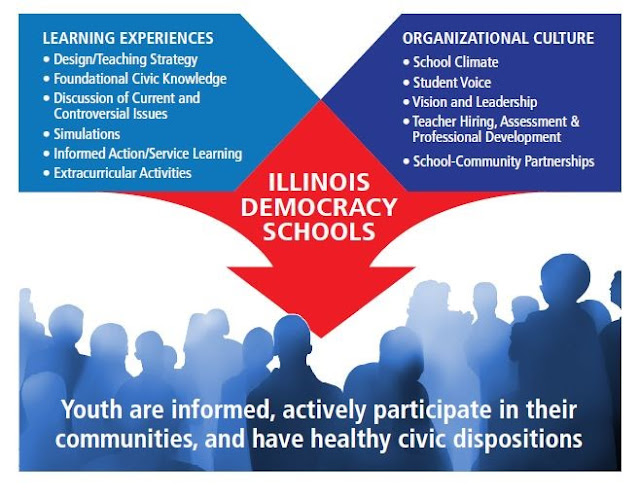Civics Across the Curriculum: Every Teacher is a Civics Teacher

Repost from December 9, 2020
The kick-off to the Civics Across the Curriculum webinar series was held on Thursday, December 3, 2020. This year’s theme builds on the theme from the originally scheduled Democracy Schools Network Spring 2020 convening, “Every Teacher is a Civics Teacher: Best Practices for Civic Learning and Organizational Supports.” View a recording of the session.
Panelist Alejandra Frausto, Project-Based Learning Manager in the Chicago Public Schools Department of Social Science and Civic Engagement, discussed the changes that Chicago Public Schools have made in moving from an hours-based community service requirement to project-based requirements in classes. She shared a powerful example from her science classroom teaching experience where she was able to support her students in addressing a community issue and working towards transformational change.
Lastly, panelist Eileen McMahon, Principal at Maine West High School, discussed the importance of leadership in ensuring the civic mission of school supports students to define and create agency for themselves. The discourse of learning in schools can shift to thinking of how we do school “with” students instead of doing school “to” students, challenging the ideology of power that exists in schools.
Some additional resources were shared in the discussion that underlines some themes that emerged from the session:
- What Kind of Citizen? emphasizes the different ways to think about citizenship and this connects to informed action.
- This blog touches on what informed action might look like during a pandemic.
- The Lived Civics Framework is a helpful reference for helping us to think about “with community, for the community”.
- The book, Cultivating Genius: An Equity Framework for Culturally and Historically Responsive Literacy, by Gholdy Muhammad was shared as a potential framework for approaching this work in literacy.
This was an incredibly inspiring conversation and emphasized the importance of identity, creating agency, and affirming that all adults can be civics teachers for our students.
